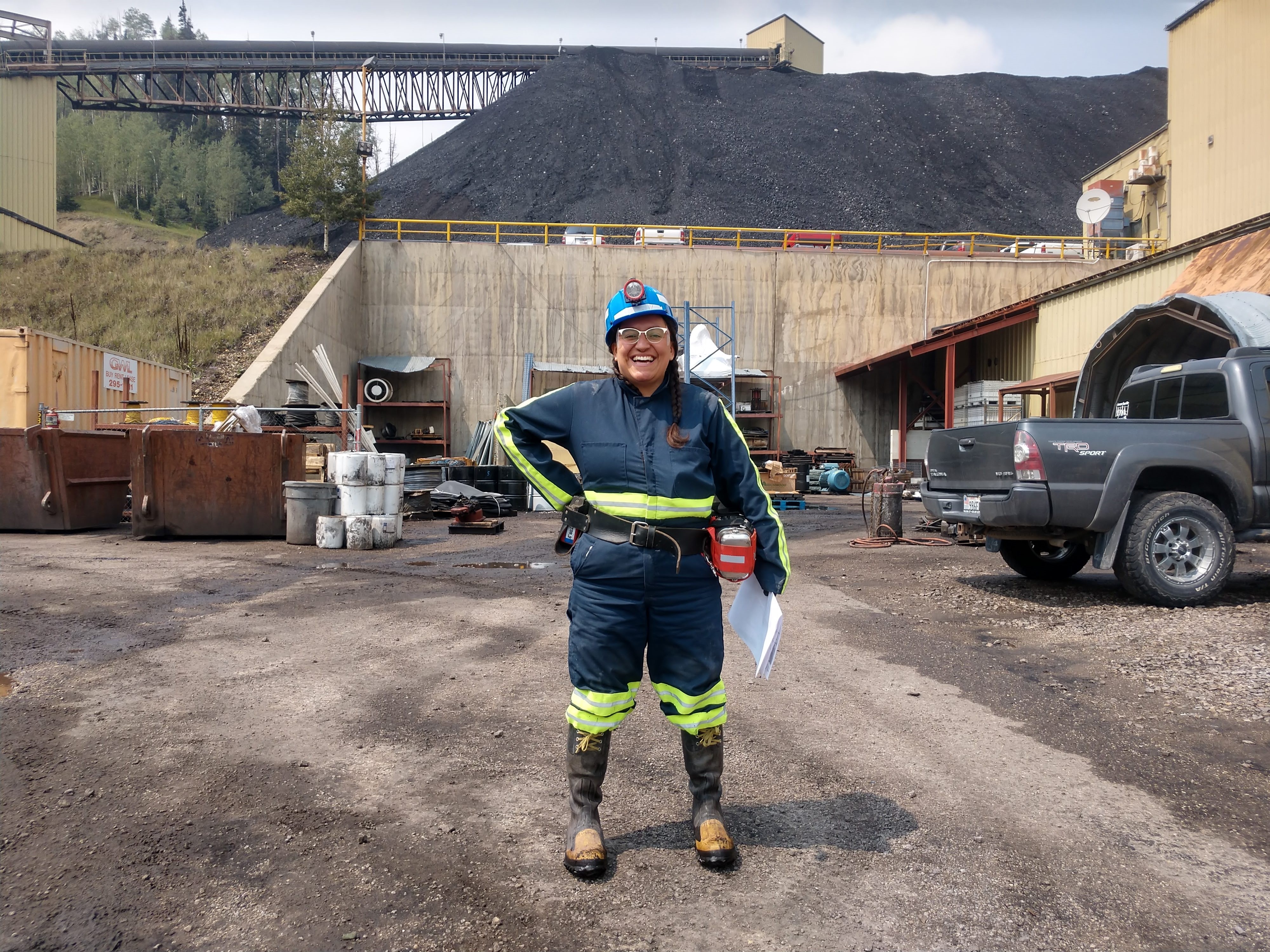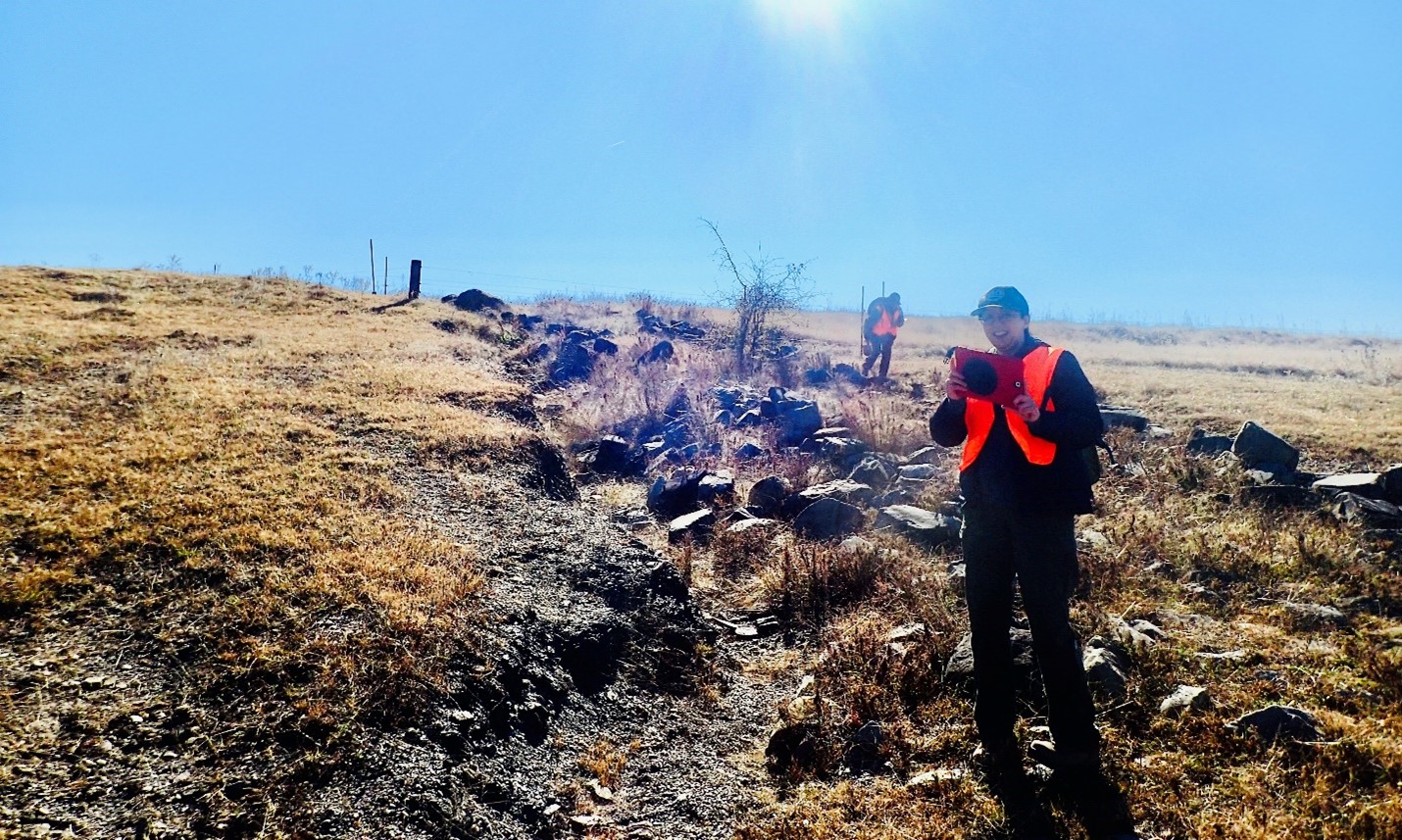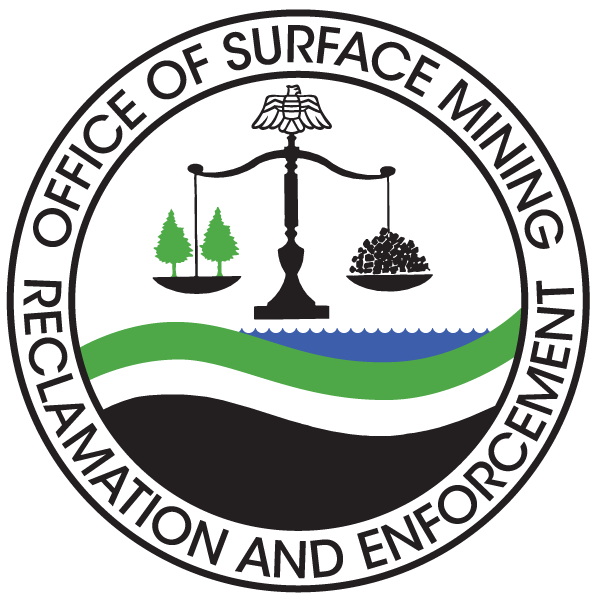Bobbi Martinez Hernandez
Natural Resource Specialist – Western Region
About:
Bobbi lives in Denver and is a Colorado native. She has a 17-year-old foster son, a cat, a turtle, and five chickens. She holds a master’s degree in environmental engineering from the Colorado School of Mines, where she wrote her thesis on the use of sulfate-reducing bacteria to treat acid mine drainage. She joined OSMRE in 2011 as an AmeriCorps volunteer, working in the Indian Programs branch. In her current position, she works on environmental assessments for potential coal mining projects, and what resource areas they might affect. She also manages environmental assessments for AML projects on federal lands.
What was your path to where you are today?
I’ve always loved math and science; it came naturally to me. I originally thought I would do electrical engineering, but in college I was required to take classes on different engineering fields, and I was immediately drawn to environmental engineering. I used to go camping all the time when I was younger, and I was in the Girl Scouts; I think growing up in Colorado, it’s hard not to love being outdoors.
What is your favorite part about working for OSMRE?
It’s nice that we’re small enough that I can do a variety of things. For instance, I have a collateral duty as a special emphasis program manager for Hispanic programs and outreach. So, I get to do things like speaking at a science presentation for middle school girls out in rural Colorado.
I also think it’s really cool that I’ve gotten to meet with people all the way up to the deputy director. I don’t think that happens often at the larger bureaus. I’ve even gotten to be involved with a climate change interagency working group out of the White House, which is so cool.
What has been the biggest obstacle in your career you had to overcome?
I had a bit of a crazy situation when transferring from an AmeriCorps position to being a full-time employee. At that time it was a much more complicated process; I had to get an additional certificate in GIS, but it turned out that didn’t fit the HR requirement. I essentially had three weeks to find another program, or I wouldn’t have a job, which was really stressful. I went down to the University of Colorado Denver, and they happened to have a certification program in environmental policy management and law, but applications were already closed. Thankfully they made an exception for me, and I ended up learning things that would be super useful in my work for OSMRE.
How has your cultural heritage and identity influenced your career path?
My cultural identity has definitely impacted my decision to become a special emphasis program manager for Hispanic programs. I think the evidence is clear that different minority communities don’t always have the same exposure to educational opportunities, and having experienced that myself, I wanted to use the knowledge I have to spread those opportunities to my community. Everyone at OSMRE has been really supportive of those initiatives.

Jenna Hincks
Program Support Division Chief – Charleston Field Office
About:
Jenna has worked at OSMRE since 2015, where she started as an AmeriCorps member. She’s married with two kids, and originally grew up in Pennsylvania. She holds a degree in natural resources and the environment from the University of Connecticut, and a GIS certification from the University of California Riverside.
What was your path to where you are today?
I lived outside of the coal fields in Pennsylvania by about an hour. In elementary school we had a few field trips that brought us to exhibition coal mines, like one near Scranton. I actually have a great grandfather on one side who came over from Poland and mined coal in Wilkes-Barre. My degree was more focused on wildlife, but after taking GIS courses, I had the opportunity to serve as an AmeriCorps member with OSMRE. I enjoyed learning about the mining process and the effect it's had on the environment.
What is your favorite part about working for OSMRE?
I think we’re a really important part of the whole balancing act between the environment, industry, and the public. In West Virginia, there’s still a very serious need for reclamation. We go to AML sites that are in people’s back yards, and there are small children that will walk into abandoned mine openings. When you get out in the field and see these dangerous features, it really makes you feel like what you do matters.
How has your heritage or identity influenced your career path?
My experience as a mother has absolutely influenced me in this job. A few years ago, we went out to a site, and as we stood there a school bus pulled up; the bus stop was right there. It honestly blew my mind that this mine opening was still out there, and people even hang out inside. All I could think about was, what if my kid was getting off that bus? Motherhood really makes you aware of how serious these things are.
How does your work contribute to OSMRE’s mission?
One of my key goals is to have us attend more public outreach events. I’ve been trying to help us move our message to the internet and social media, so we can reach more people and make sure the public knows what we do and what resources we provide. I’m in a new role where I’m able to make more decisions than I used to, so I’m working to get us out there and interacting with people.
Gelareh Smith
AML and Regulatory Program Specialist – Tulsa Field Office
About:
Gelareh started at OSMRE in 2014 as an AmeriCorps member working on GIS programs. She moved to the US in 2010, after which she earned a bachelor’s degree in Physics and a master's degree in GIS from the University of Maryland. As a regulatory program specialist, she performs analyses of the Title V program in several states and is also a point of contact for OSMRE’s TIPS program.
What has been the biggest obstacle in your career?
One obstacle was moving from Virginia to Oklahoma; it was a tough decision because I was re-entering the workforce after raising my first son. I had to leave our family and be far away from everyone, so that was really big. Growing up, I learned to embrace the change and complexity of life, and I think it made me adaptable and able to overcome any professional barriers.
What is your favorite part of working for OSMRE?
I love being able to collaborate with employees from across the country at the regional and state levels. OSMRE also provides amazing trainings where you’re able to network with folks from different offices. You get to learn so many things from people with different backgrounds and specialties. When I started as an inspector, my background was totally outside of mining, so I had to take a bunch of different engineering and science courses. I still keep in touch with the people I met there, even though it’s been many years. I think my work challenges me every day, and I’m always learning something new.
How has your cultural heritage or identity influence your career?
Growing up, my dad taught me a lot about how to grow things and take care of the soil, since he had a background in agriculture and engineering. We used to go out to parks a lot, which I think started my passion for the environment.
In my culture, furthering your education is always the number one priority, especially in engineering or medical fields. After I completed my master's degree, I was debating getting my doctorate because of a lot of cultural pressure, but I realized that I didn’t want to be in academics at the time. I wanted to start my career and earn more practical skills, and I learned how much I enjoy working.
What is something unexpected you’ve encountered in your job?
As a woman and an ethnic minority, it was a big challenge when I started doing inspections in the field. Coal is a very male-dominated industry, and there were a couple occasions where I felt like I was being looked down upon or not taken seriously as a female inspector. It’s already hard to make those one-on-one connections with the community as a regulatory agency, but that added another layer. Luckily, I had a great supervisor who really supported me and made me feel more comfortable.
I really want to tell younger generations, especially women and minorities, don’t be afraid to take risks and be confident in your abilities. Try new things, even if they’re unfamiliar. There’s nothing wrong with asking questions; there’s always opportunities to learn and expand your skillset.


